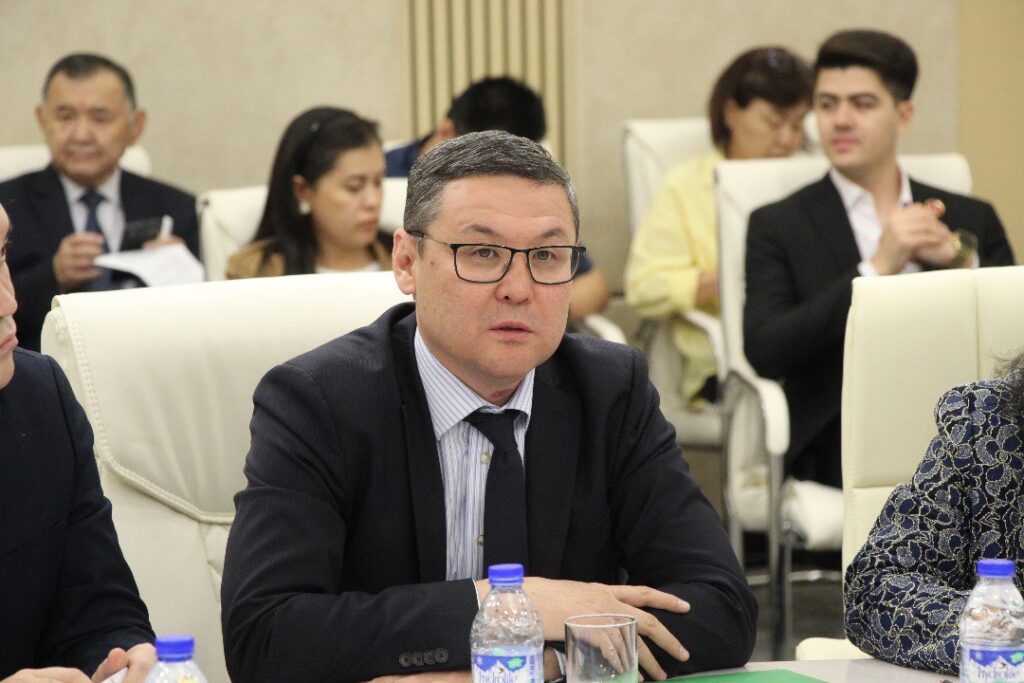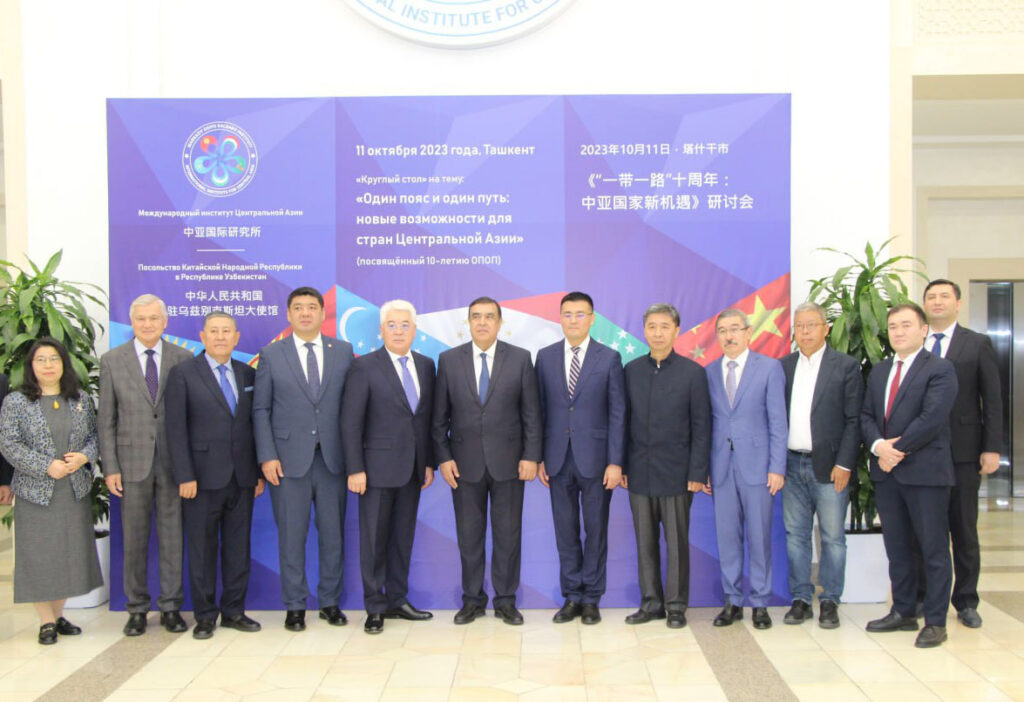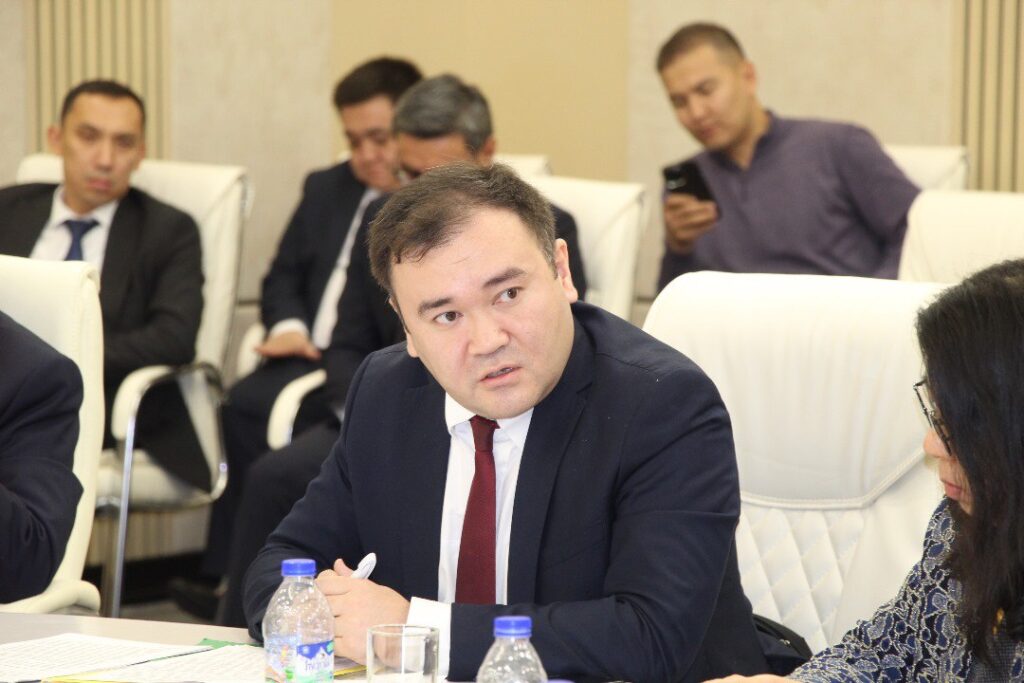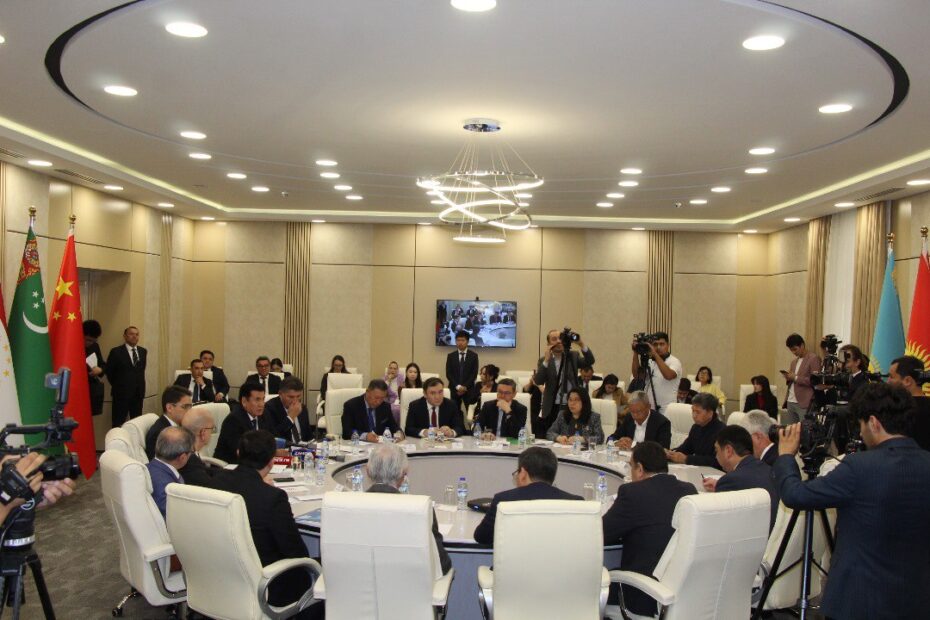On October 11, Tashkent hosted an international roundtable on “One Belt and One Road: New Opportunities for Central Asian Countries” dedicated to the 10th anniversary of OBOR (“One Belt and One Road”).
The event was attended by experts and representatives from different countries. The main topic of discussion was the importance of the One Belt and One Road initiative and its impact on the economic development of the region. Cooperation within the framework of the initiative has become a significant factor of multidimensional partnership, including investment projects and trade and economic relations.
The roundtable discussed ways to improve the effectiveness of multilateral relations in the Central Asia region. In his welcoming speech, Director of Kazakhstan Institute for Strategic Studies under the President of the Republic of Kazakhstan Yerkin Tukumov noted that Kazakhstan is an active participant in the implementation of the “One Belt and One Road” initiative, along with other countries in the region. Head of KazISS emphasized that Kazakhstan aims to further develop cooperation with China in order to implement investment projects, in which visa facilitation can play an important role.
At the same time, further development in cooperation requires strengthening cooperation between Central Asian countries in the cultural and humanitarian aspect to study the history of the region. Yerkin Tukumov stressed that in this direction it is necessary to develop ties between the “archival” organizations of the countries in close cooperation with the People’s Republic of China.
In addition, he noted that against the background of the new reality, further development of transit-transport cooperation on the principles of friendship and mutual benefit is required.
Head of the Department of European and American Studies of KazISS Bekzhan Sadykov spoke at the main part of the round table from the Kazakh side. He said that Kazakhstan sees great interest in further joint construction of the Silk Road Economic Belt due to the promising benefits for the country and Central Asia. According to the expert, the Republic of Kazakhstan pays great attention to maintaining the sustainability of multi-vector policy, which also allows the development of trans-regional ties between Asia and Europe.
“Central Asian countries, in order to develop transport and logistics partnerships and economic cooperation, should pay more attention to those trends that are currently shaping the future of global trade, such as low-carbon development and digitalization,” summarized Bekzhan Sadykov.





